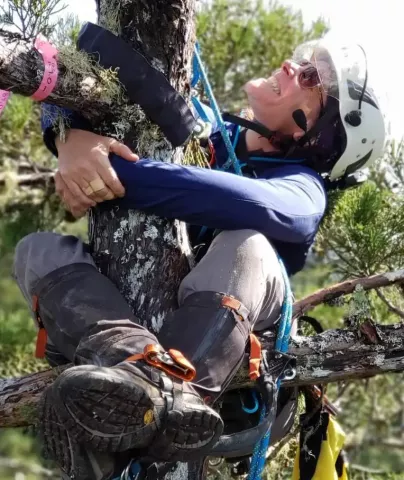Forest Ecophysiology
Forest Ecophysiology
Experimental Design Videos for the Tropical Montane Cloud Forests
Video 1 - Experimental Setup
Video 2 - Microclimate Installation
Video 3 - Sap Flow Installation
Forest Ecophysiology in Costa Rica
Research in the Forest Ecophysiology lab lies at the interface between ecohydrology, plant physiology, and ecosystem ecology. We work to understand the mechanisms that confer success and failure in response to different microclimatic conditions and we then build upon the findings to understand how potential changes in water use or community structure will affect the hydrologic cycle. To date, most of our research efforts have been focused on understanding how decreases in water availability will affect the structure and function of the Tropical Montane Cloud Forests of Central and South America. Starting this summer, we will begin to expand our research efforts in the forests of Central and Southern Appalachia.
This summer, our local research program will begin in our very own Robinson Forest where we will be investigating the importance of valley fog for tree function. During the warm summer months when evapotranspiration is greatest, trees can experience water stress which reduces health and productivity. The degree to which morning fog events can mitigate that stress is not well known. In other ecosystems, our team has found that fog can reduce water stress and that some plants can even absorb water from the surfaces of leaves, improving leaf hydration. Our team will begin to address the following questions:
- What is the influence of valley fog on tree water balance?
- Is there species-level variation in the effects of valley fog on tree function, and if so, what causes those differences?
- How do slope position and aspect impact the interaction between valley fog presence and tree water status?
Understanding how microclimate shapes tree function is important as we think about how to manage species in regions like Central Appalachia where topography, microclimate, and habitat quality are so varied. Our data will also be used by a lab that we collaborate with at Wake Forest University. This group, led by Dr. Lauren Lowman, is working to improve hydrologic models by considering what happens to forest health and productivity when leaves are wet and improving our understanding of how Central Appalachian forests will be impacted by changes in climate.
This project is just the first of many research projects that we envision developing locally. We look forward to collaborating with folks in the department and others throughout the region where our toolkit in tree physiology can be put to good use!

Associated Faculty
Research Topic Areas
Research Quick Links
Forestry and Natural Resources Department
forestry.department@uky.edu
(859) 257-7596
Forestry and Natural Resources Extension
forestry.extension@uky.edu
(859) 257-7597
